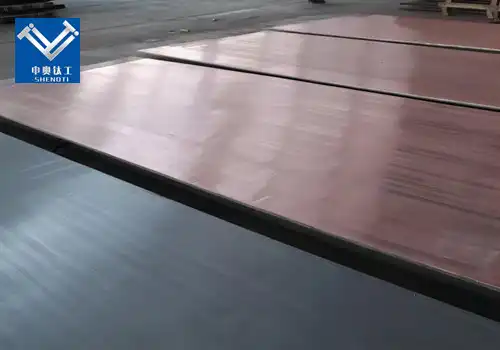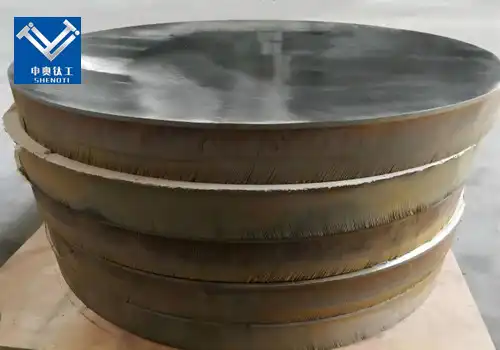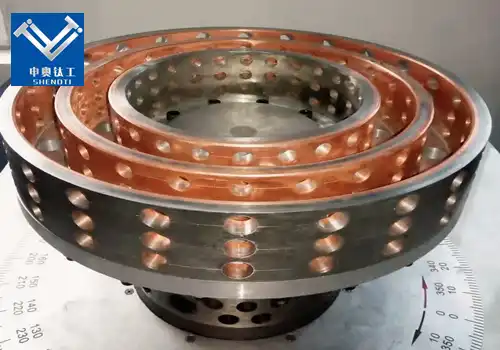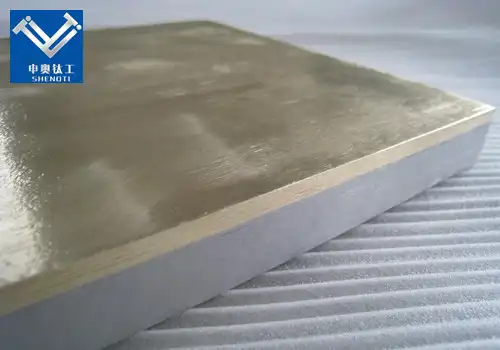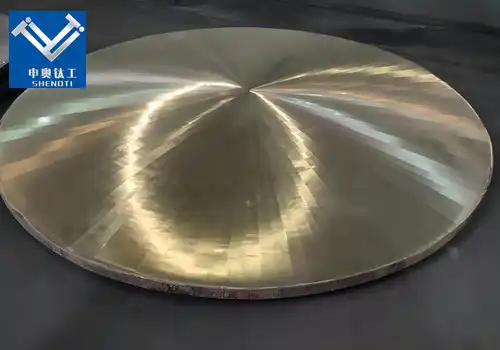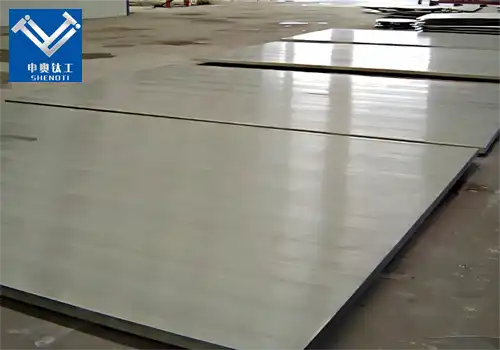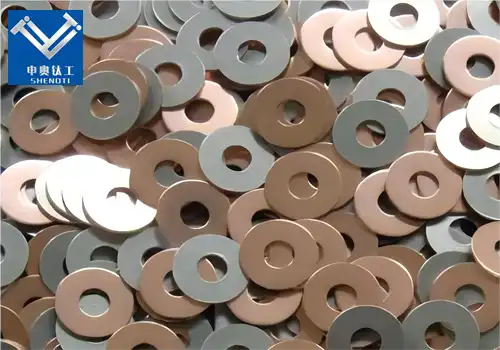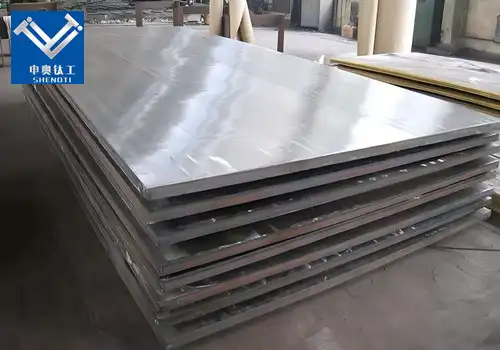
What Is a Titanium Aluminum Clad Plate and Why Is It in Demand?
2025-07-10 17:09:53
What Is a Titanium Aluminum Clad Plate and Why Is It in Demand?
In today’s rapidly evolving industrial landscape, material performance, cost-efficiency, and sustainability are key factors driving innovation. Among the many advances in metallurgy, the Titanium aluminum clad plate stands out as a revolutionary material that combines the exceptional corrosion resistance of titanium with the lightweight and high thermal conductivity of aluminum.
Titanium aluminum clad plates are bimetallic composite materials made by metallurgically bonding a layer of titanium and a layer of aluminum. This combination allows engineers and manufacturers to optimize structural strength, corrosion resistance, and cost—all in one solution. These plates are increasingly used across aerospace, chemical processing, marine engineering, power generation, and electronics industries.
Key Advantages of Titanium Aluminum Clad Plate
1: Lightweight Yet Strong
One of the most striking advantages of the Titanium aluminum clad plate is its unique balance between strength and weight. Aluminum is known for being lightweight, while titanium offers superior strength-to-weight ratio. Together, they form a composite that is lighter than pure titanium but significantly stronger and more corrosion-resistant than pure aluminum.
2: Outstanding Corrosion Resistance
Titanium naturally forms a passive oxide film on its surface, giving it excellent corrosion resistance, particularly in aggressive environments such as seawater, acidic chemical solutions, and chlorinated water. By cladding aluminum with titanium, the resulting plate resists corrosion in places where conventional materials would fail.
3: Thermal and Electrical Conductivity
Aluminum provides high thermal and electrical conductivity, which is crucial for heat exchangers and electronic applications. The Titanium aluminum clad plate leverages this characteristic, enabling efficient heat transfer in critical systems while the titanium layer protects against chemical degradation.
4: Cost-Efficiency Through Material Optimization
Pure titanium is expensive, and using it alone for large-scale applications can be cost-prohibitive. By bonding a thin layer of titanium over a thicker aluminum base, the Titanium aluminum clad plate offers a way to achieve the same functional benefits at a significantly lower cost.
How Is Titanium Aluminum Clad Plate Manufactured?
The manufacturing of Titanium aluminum clad plates involves advanced metallurgical processes that ensure strong bonding between dissimilar metals. The most common methods include:
1: Explosion Welding
Explosion welding is a solid-state welding process where high-energy explosives are used to accelerate one metal plate onto another, creating a metallurgical bond through intense pressure. This technique is especially suited for cladding titanium to aluminum, preserving their individual properties while achieving a defect-free bond.
2: Roll Bonding
In roll bonding, metal sheets are cleaned, stacked, and then passed through a series of rollers under heat and pressure. This method is often used for continuous production and allows precise control over plate thickness.
Typical Applications of Titanium Aluminum Clad Plate
Thanks to its combination of mechanical performance and resistance to harsh environments, the Titanium aluminum clad plate is a go-to material in several industries.
1: Chemical Processing Industry
In equipment like heat exchangers, reaction vessels, and acid pipelines, the Titanium aluminum clad plate offers excellent corrosion resistance while keeping structures lightweight and cost-effective. It’s ideal for environments involving hydrochloric acid, nitric acid, and other corrosive chemicals.
2: Aerospace and Aviation
Aerospace structures benefit from any reduction in weight without sacrificing strength or durability. The Titanium aluminum clad plate is used in components such as fuselage panels, bulkheads, and mounting structures where weight, strength, and corrosion resistance are critical.
3: Marine and Shipbuilding
Seawater corrosion is a major issue for ship hulls and offshore platforms. Titanium aluminum clad plates offer the ideal solution with their resistance to saltwater corrosion, making them suitable for marine components like seawater pipelines, condenser tubing, and underwater enclosures.
4: Electronics and Power Engineering
Aluminum’s conductivity and titanium’s corrosion resistance are a perfect match for electronics cooling plates, power distribution boards, and battery components. Titanium aluminum clad plates improve durability and heat management in energy storage and electronic systems.
Comparison with Other Clad Materials
While Titanium aluminum clad plates offer many advantages, it’s important to compare them with other commonly used clad combinations to understand their unique position.
Comparison with Other Clad Materials
While Titanium aluminum clad plates offer many advantages, it’s important to compare them with other commonly used clad combinations to understand their unique position.
|
Clad Material |
Advantages |
Limitations |
|
Titanium Aluminum Clad Plate |
Lightweight, corrosion-resistant, conductive |
Higher cost than standard aluminum |
|
Titanium Steel Clad Plate |
High strength, cost-effective |
Heavier, less thermally conductive |
|
Copper Aluminum Clad Plate |
Excellent conductivity, good formability |
Not suitable for highly corrosive media |
As shown above, Titanium aluminum clad plate is the optimal choice when balancing weight, corrosion resistance, and thermal performance.
Technical Specifications and Standards
Typical technical parameters for Titanium aluminum clad plates include:
Titanium Grade: Grade 1 or Grade 2 (commercially pure)
Aluminum Alloy: 1060, 3003, 5052, or 6061
Cladding Ratio: Titanium thickness 0.5–3mm / Aluminum substrate 5–50mm
Bond Strength: ≥130 MPa (shear)
Standard Dimensions: Thickness 5–50 mm, width up to 2000 mm, length up to 6000 mm
Standards: ASTM B898, ASME SB-265, JB/T 6396
These specifications may vary depending on the supplier and specific application.
Choosing the Right Supplier for Titanium Aluminum Clad Plate
When sourcing Titanium aluminum clad plates, the quality of the bond, consistency of thickness, and chemical purity are vital. Look for a manufacturer that:
Has extensive experience with explosion welding or diffusion bonding
Provides traceable raw material certification
Offers customized thickness and alloy combinations
Complies with international standards such as ASTM and ISO
Baoji City ShenAo Metal Materials Co., Ltd., located in the heart of China’s “Titanium Valley,” is a leading supplier of high-performance Titanium aluminum clad plates. With expertise in metallurgical bonding technology, they provide custom solutions for global clients in aerospace, chemical, and marine sectors.
1: Frequently Asked Questions About Titanium Aluminum Clad Plate
2: Is a titanium aluminum clad plate recyclable?
Yes. Both titanium and aluminum are recyclable metals, and the plate can be separated using specialized industrial processes.
3: Can titanium aluminum clad plate be welded or machined?
While machining is relatively straightforward, welding requires careful control to prevent delamination. Edge welding is often done using TIG or MIG with appropriate filler materials.
4: Is there any risk of galvanic corrosion between titanium and aluminum?
When properly bonded and isolated from external electrolytes, the risk is minimal. The clad design protects the aluminum from direct exposure.
Why Choose Titanium Aluminum Clad Plate?
The Titanium aluminum clad plate is more than just a hybrid metal product—it’s a strategic solution that bridges performance and economy. Whether you're designing a heat exchanger for corrosive environments, a lightweight aircraft structure, or a power system for renewable energy, this advanced material offers the best of both worlds.
By leveraging the protective nature of titanium and the efficiency of aluminum, businesses can reduce lifecycle costs, improve reliability, and enhance overall product performance.
Contact Us
Interested in premium-grade Titanium aluminum clad plates? ShenAo Metal Materials is your trusted partner for custom bimetallic solutions.
Baoji City ShenAo Metal Materials Co., Ltd.
📍High-Tech Industrial Park, Baoji, Shaanxi, China
📧 Email: zh@baojiti.com.cn
🌐 Website: shenaocladplate.com
YOU MAY LIKE











